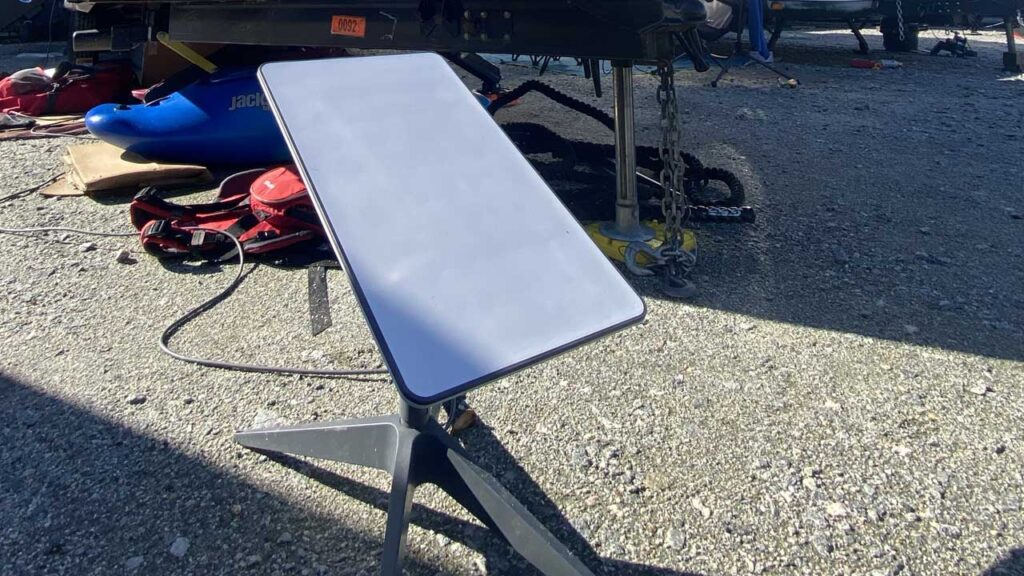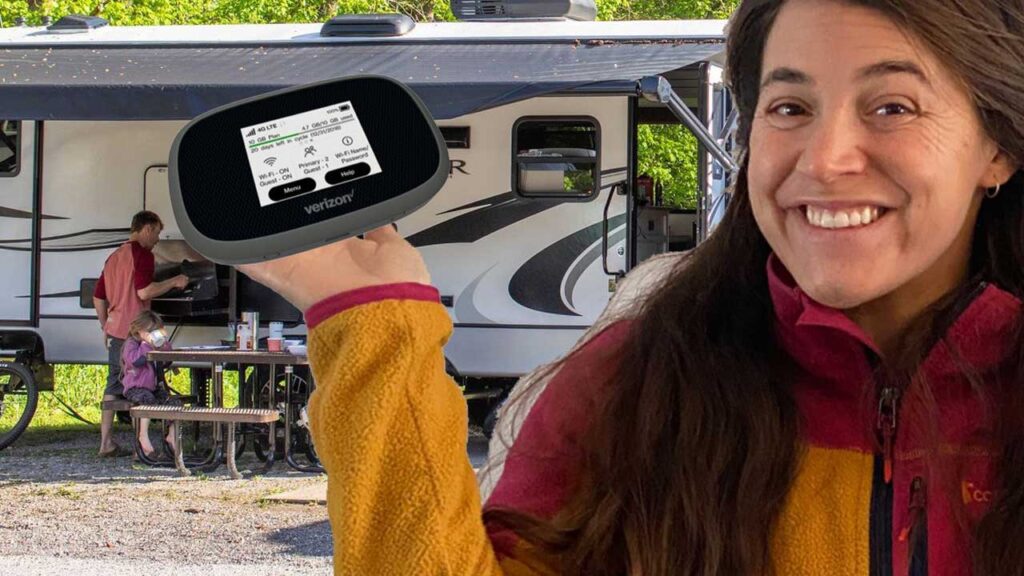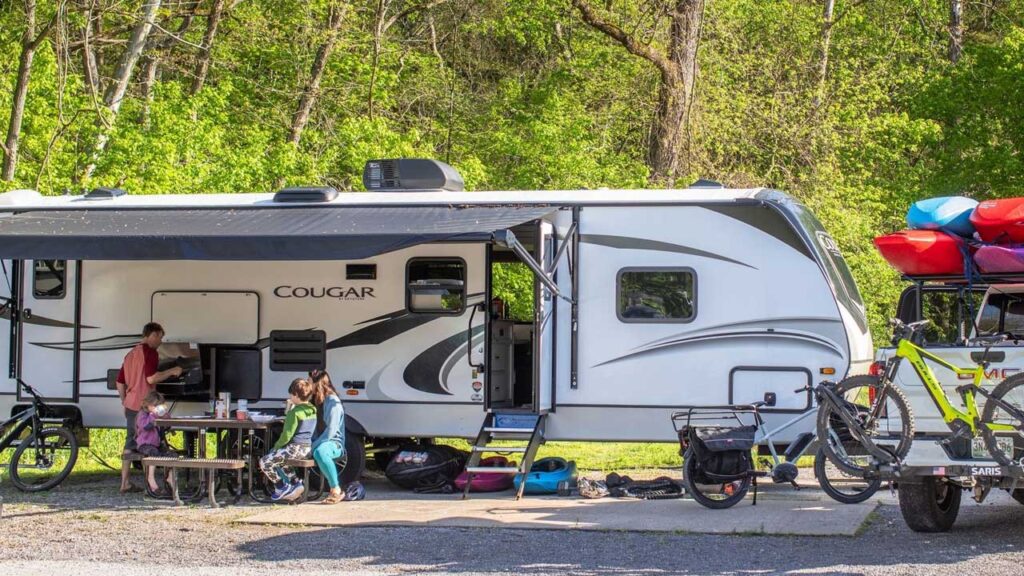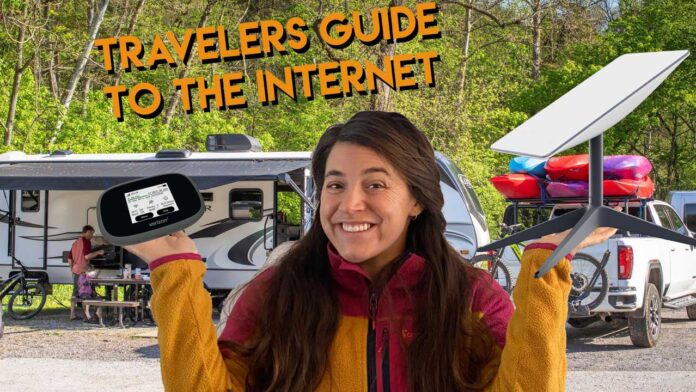I travel almost full-time for nine to ten months out of the year, and I live out of a beautiful 32-foot trailer with my family. I work remotely and do a lot of video work, editing, and uploading. I’m a brand manager for a kayak company, Jackson Kayak, the internet is an important part of my day.

Over the years, we’ve tested many different internet plans. I’m going to give you a quick rundown of the four that we use the most.
Sky Net – Wireless for Remote Locations
The first one is our brand new Sky Net. It’s definitely the biggest internet contraption that we’ve had. It's actually a recent purchase because it came out with their mobile edition. It was was specifically marketed at people who travel in RVs.

We went ahead and purchased it, and I can tell you that the internet is fast. I can do all my Zoom calls and all my Skype calls without any issues. It’s about $135 dollars a month, and initially, for the setup of the mobile version, it's about $700. It’s very worth it, and I'm definitely finding that the internet works everywhere. It also works in Canada, which is great! I'm not limited to only being able to use it in the U.S.
Verizon MiFi – Wireless for Remote Locations
The other internet program that we've used over the years is Verizon’s MiFi which is a smaller contraption. I still really like the MiFi, and I still have it even though we have the Skynet. The reason why we still have it is that it is battery operated. It doesn’t require any power, whereas the Skynet has to be plugged in, and it pulls from our solar.

If I have to work all day long and we’re not plugged in, then the Skynet can drain its battery. This is why we have the MiFi because I can charge it. It keeps its charge pretty well for our backup option.
With the MiFi, you can connect multiple devices to it. I think it’s only $35 a month once you’ve purchased the pack itself. As far as the monthly costs, it really isn’t that bad compared to other options.
One other cool thing about the MiFi is that it works really well if you’re outdoors doing something. You can just throw it in your backpack and use it on the go.
Verizon Phone Plan – Wireless for Remote Locations
We use Verizon phones, and I frequently use the hotspot quite often. Between the Skynet, the MiFi, and our Verizon phone plan, we’re connected to the internet most of the time.

GMC Truck HotSpot – Wireless for Remote Locations
One last feature we have for the internet is actually our truck. We have a GMC truck, and it has a hotspot as well. I never really realized how much we would be using it. When we’re driving, there are so many cases where the cell service isn’t good. When our phones and our MiFi don’t work, the hotspot on our truck works great.
I’ve also found that with the truck, long drives aren’t a problem for work. The GMC HotSpot keeps me working while Nick’s driving, or vice versa.
Four Wireless Remote Suggestions
So, those are the four main internet connections that we use. Of course, you can take advantage of the wifi internet in cafes and different RV parks. If the internet is one of the reasons that’s stopping you from hitting the road for a long period of time, then I would definitely consider doing some research. There are so many great options out there to help you.
We’re using all four different internet sources right now. The total monthly cost for us is around $200. It’s a work expense and a big part of allowing us to be able to take on these adventures, so for us, the expense is totally worth it.
There are plenty of options for you to check out. Whether you can see if you can get a car with a hotspot, the Skynet, the MiFi, or your phone’s hotspot, all of them are available and will help you transform your adventures into long term adventures and turn your dream of working on the road into a reality.

Fleece Jacket: Cotopaxi Abrazo Half-Zip Fleece Jacket
Portable Wifi: Verizon’s MiFi













